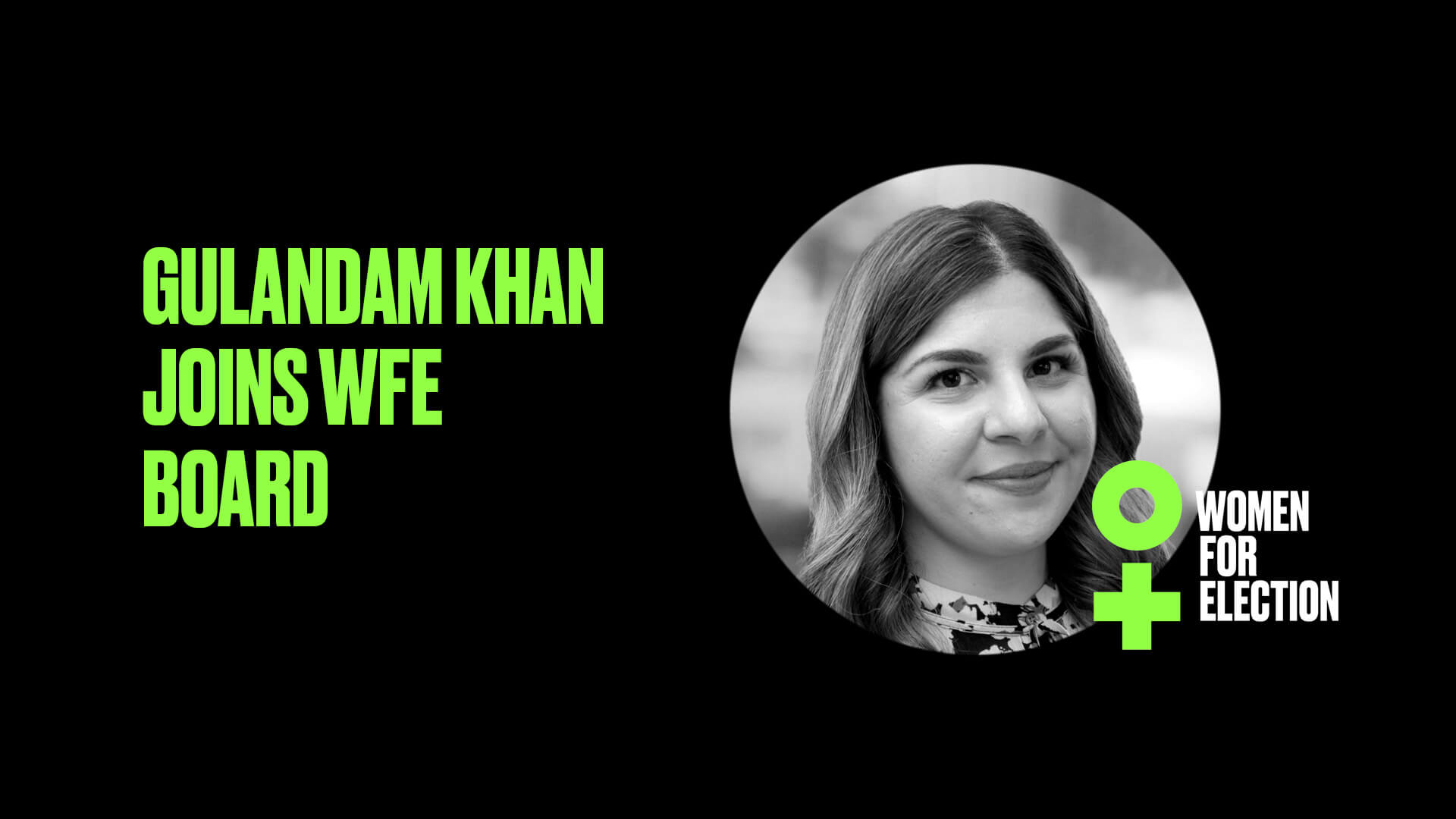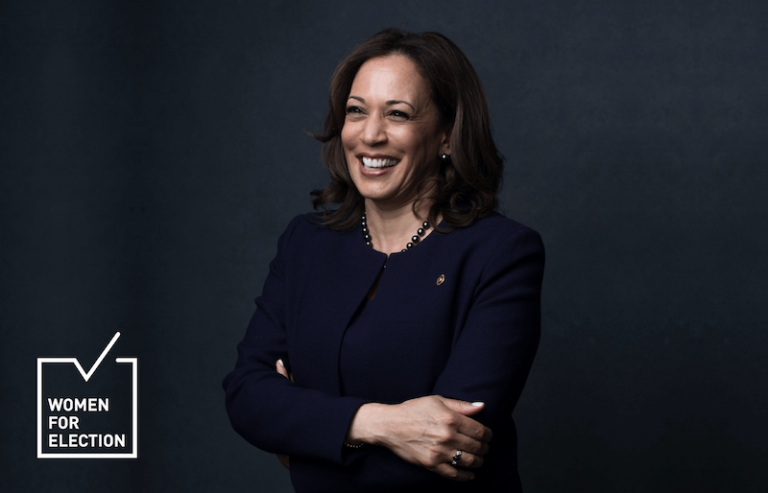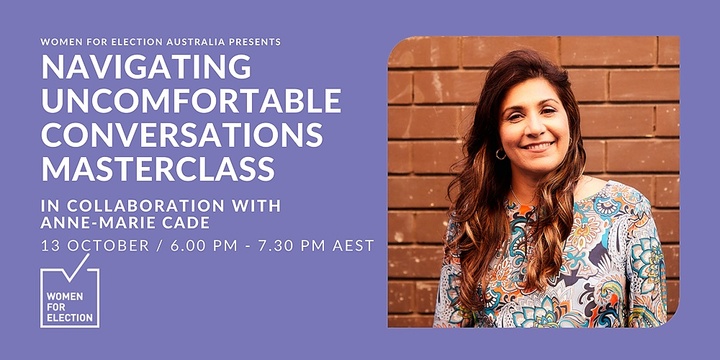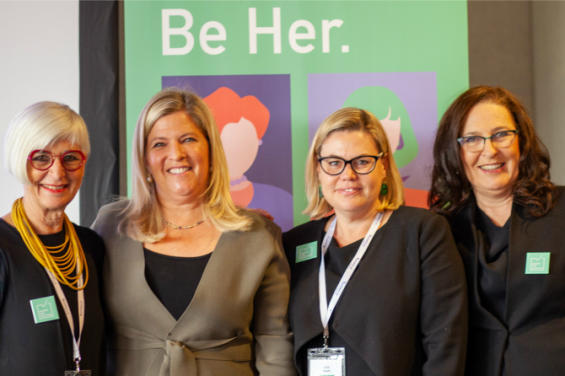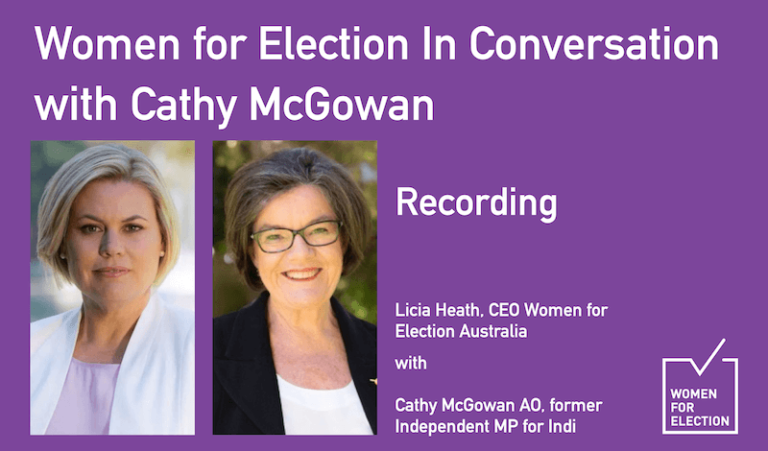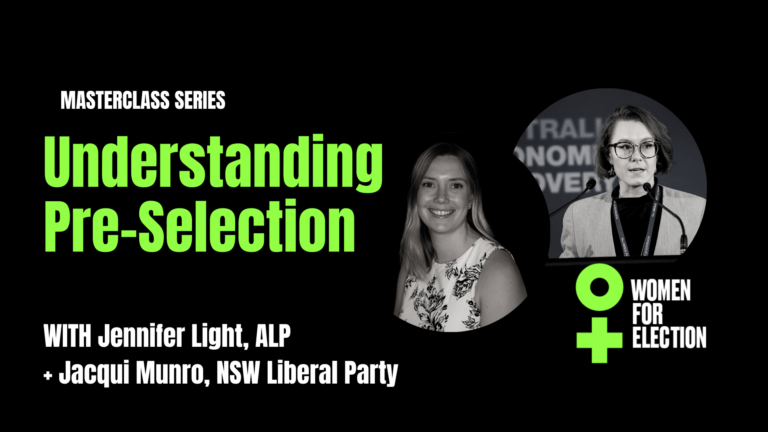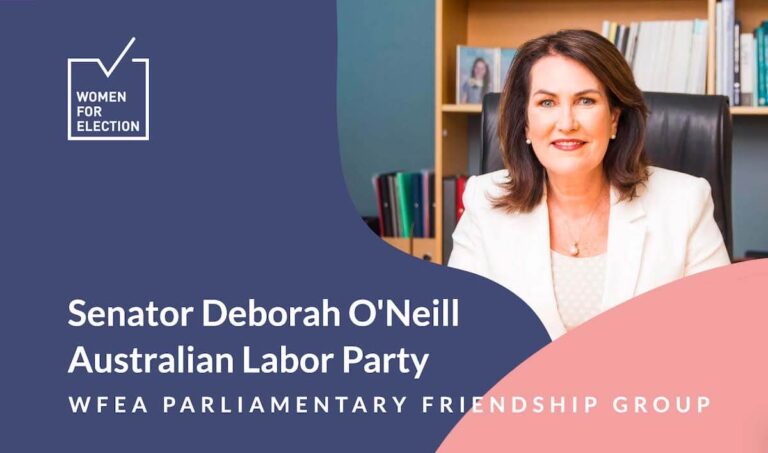Gulandam Khan joins the board
How did you come to join the board of Women for Election Australia?
Migrating to Australia at the age of 12, I missed the cut for the compulsory curriculum on politics and democracy. With the pressure of needing to succeed in a newfound home, I kept my focus on my formal education and career – rarely following politics. However, the reality was that even though I remained uninformed and apolitical, politics was already affecting my life – I just didn’t understand how at the time.
It wasn’t until my mid-20s when I understood the magnitude of impact politics already had in shaping my life from the moment I landed in Australia. From the complexity of accessing welfare, insecure work, housing affordability and language barriers; all my personal experiences were grounded in decisions made by those in power. And barely anyone in power seemed to represent people like me.
In discovering the importance of politics so late in life, I’d often self-reflect on why I hadn’t sought to understand it earlier. The reality for me, and for many others, is that politics has always been inaccessible. Whether it was the elitism of student politics, or the nepotism that limited career prospects– it wasn’t a career path that seemed open to someone like me – a young, migrant, woman of colour.
I started working on making politics more accessible to young people in Australia, in hopes that someone who may be finding it intimidating or complex can be supported to demystify it all. Through this process, I admired the work of WFE and attended several events before accepting the role as a Board Director last year.
Why is gender equality in public office vital to you?
About 100 years ago, Australian women were amongst the first in the world to gain both the right to vote and the right to be elected to parliament – with Indigenous women being made to wait another long 60 years.
But ultimately, it took roughly 40 years before a woman was elected to Federal parliament and in 2022, even though there are more women in parliament than ever before, women only make up one third of our elected representatives. That is simply not enough to represent 51% of the population, and certainly not when we start to take an intersectional lens to representation.
We know that less than 32% of federal MPs are women, but what’s also important to highlight is that only 4% of federal MPs have non-European ancestry, and less than 2% of federal MPs are under 30. Out of the 23 individuals with a disability elected to a combination of state and federal parliaments in Australia, only three of these have been women.
There’s not a lot of people in our parliament that reflect the diversity of the country they are serving. If we allow these deficits to continue, we will perpetuate the gender divide in Australia. We can only achieve gender equality when those with power uplift others who face greater forms of disadvantage. We must tread carefully when attempting to speak for all women when we are only speaking for ourselves, and to not borrow disadvantage that does not belong to us.
What do you think you can bring to Women for Election Australia?
I have a passion for rebuilding trust in politics and democracy, and particularly for cohorts where trust in government is declining rapidly – women, migrants, and young people (PwC, 2020). If citizens do not trust governments, it becomes harder for government policies to succeed and for societies to thrive.
The more representative our politics can become, the greater trust we can restore in our democracy. And that is what I think I can help Women for Election achieve. Over the last ten years, I have gained extensive experience in strategy, policy, and complex stakeholder engagement in political environments. I hope to bring my insights and knowledge to an incredible organisation like WFE at a paramount time in Australian history.
Home » Gulandam Khan joins the board

